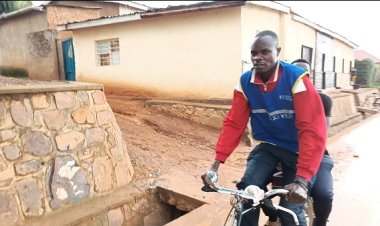Journalism involves constantly seeking out the truth and sharing it with the public – it’s a public good and serving it should be every actual journalist’s obsession.
Everything else is what it is.
Besides, journalism isn’t who someone is, it is what he/she does. But let’s discuss that in detail next time.
Now imagine going to school, paying tuition fees and putting in hours, days, months and years, and then you graduate to find that realities of the market they trained you for are long gone.
Do you embark on unlearning, and re-learning?
This is the painful situation local journalism school graduates have for long had to contend with upon setting foot in the newsroom.
I have met a number of them during my nine-year stint with local broadcast and print outlets. Their struggles revolve around lack of critical thinking and entreprising abilities to bring out and tell stories behind what thousands of netizen informants and influencers have broken, sourcing and adapting content for different platforms, among other things.
Unfortunately, some find the learning process and pressure extremely painful and quit to set up clothes retail shops at CHIC in town, or venture into things completely unrelated to journalism. Others are happy to stick around newsroom where they churn out what everyone else has done.
Also read: Plagiarism and why our journalists keep sinning
Apparently, no one is telling universities and journalism training institutions, or the latter simply don’t bother to check, that realities of the industry have completely changed.
They are comfortable sticking to the old curricula despite evidence suggesting that landscape has changed so much that a shift is overdue.
Old curricula
Apparently, no one is telling universities and journalism training institutions, or the latter simply don’t bother to check, that realities of the industry have completely changed.
They are comfortable sticking to the old curricula despite evidence suggesting that landscape has changed so much that a shift is overdue.
Even in-service journalists like myself struggle daily to cope amid society’s changing information needs, consumption patterns and content creation, among other things.
This implies that a journalist adapts or else becomes irrelevant. Since it takes skills and tools, the onus is on the training institutions to fill the knowledge/skills gaps, and the outlets to avail the tools.
I’ve personally had to make radical shifts during my eight-year career as independent journalism practitioner. It’s been a difficult but exciting learning journey that saw me switch from broadcast to working full time for print and digital publications, and later a fully converged a.k.a multiplatform journalist.
But the environment still changes so fast and new challenges keep emerging.
My argument is that unless changes take place NOW at the journalism training institutions, the market could soon run out of journalists who can move ahead of trends and take on the complex issues facing the industry today and in the coming years.
Pop stars
Besides, the young ladies and gentlemen need to stop enrolling into journalism as a means to become overnight pop stars because many who thought the same way realised sooner or later – if not too late, for some — that the profession can’t feed a family ‘of that standards’.
They don’t take long to realize that despite all the exposure, nice looks on screens and social media, pay is too low — or non-existent at some outlets — to sustain even the little known guy in the neighborhood who has no problem clinging to the commuter bus (a.k.a Shirumuteto) strap every day to and from work in a bid to save for other crucial expenses.
Yet like everyone else a journalist has bills to foot, rent to pay, children to educate or boy/girl friend to give some good ‘monetary’ care, and so on and so forth.
And then there is the demanding work that leaves one with no time for self, family and friends.
I always argue that journalists and teachers are the real servant leaders.
I came to that conclusion the day I spent Rwf90,000 ($88), a day and a night chasing a story only to find that it could fetch Rwf4,000 ($3.9) despite running on multiple platforms.
This profession is not all about money.
I salute all PRACTISING journalists.






